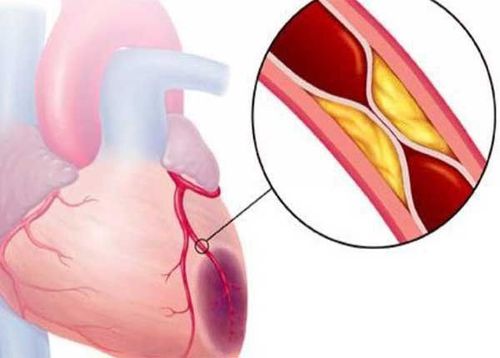This is an automatically translated article.
The article was professionally consulted by Specialist Doctor Obstetrician and Gynecologist - Department of Obstetrics and Gynecology, Vinmec Hai Phong International General Hospital
The hormonal changes during pregnancy can cause various symptoms and often discomfort throughout the body of a pregnant woman.
1. Morning sickness
More than 60% of women will experience morning sickness, day or night, this feeling of wanting to vomit is not uncommon. Morning sickness varies from person to person, some just feel like vomiting and others actually vomit. Notably, researchers are still unable to pinpoint the exact cause of morning sickness.
Most women will experience this unforgettable mark only in the first trimester, while others will suffer from this condition throughout the pregnancy. However, some studies show that women with a lot of morning sickness have higher IQs in babies.
How to reduce and avoid morning sickness Eat protein-rich foods: protein helps reduce morning sickness symptoms. Products containing ginger are clinically proven to reduce morning sickness and are safe for both mother and baby. Whether using ginger drops, ginger capsules or ginger tea, ginger works. Take vitamin B6 daily. Load a lot of water. Don't get up from bed too quickly in the morning. Sitting up too quickly can cause body imbalance. If the mother has severe morning sickness, aka hyperemesis gravidarum, consult your obstetrician for a prescription for anti-nausea medication and/or strict nutritional guidelines (extremely bland, with with easily digestible foods).
Trắc nghiệm: Bạn có hiểu đúng về dấu hiệu mang thai sớm?
Các dấu hiệu mang thai sớm không phải chỉ mỗi trễ kinh mà còn có rất nhiều dấu hiệu khác như xuất huyết âm đạo, ngực căng tức,… Điểm xem bạn biết được bao nhiêu dấu hiệu mang thai sớm thông qua bài trắc nghiệm này nhé!
2. Lack of vitality/ Lethargy/ Fatigue
Another common symptom of pregnancy is feeling tired, which often persists throughout the first and third trimesters of pregnancy. More than half of pregnant women suffer from this symptom, most just want to find a private place to curl up and take a nap.
The mother's body is producing many new hormones and making many changes to prepare for the development of the fetus. The mother's body also produces more blood to carry nutrients to the baby, increasing pressure on the heart and other organs. Mental and emotional stress are also reasons why you may feel exhausted.
You may also have trouble sleeping in later stages of pregnancy due to frequent defecation, leg cramps and heartburn.
Fatigue can be a symptom of anemia, especially iron deficiency. Your body needs iron to make hemoglobin, the substance in red blood cells that allows them to carry oxygen to your tissues and to your baby. According to the American College of Obstetricians and Gynecologists (ACOG), a mother's iron requirement doubles to 27 mg during pregnancy due to the baby's needs, the amount of extra blood produced by the mother's body, and the expected blood loss during pregnancy. at birth.
Most prenatal vitamins contain enough iron to support this increased need (except gummies). To get enough nutrition through food, eat iron-rich foods such as red meat, poultry, fish (up to 2-3 servings per week), dried beans, peas, iron-fortified cereals and prune juice.
How to reduce and avoid fatigue during pregnancy To reduce the lack of energy and fatigue caused by pregnancy, do:
Have plenty of naps during the day. Get up and walk around to get your body moving. Go to bed early. Reduce waking up to pee by drinking water earlier in the day and avoiding drinking at least 2 hours before bedtime. Minimize nighttime heartburn by not eating right before bedtime (before 2-3 hours). Stretch your legs before bed to avoid leg cramps and incorporate potassium-rich foods like: bananas, peaches, kiwis, potatoes and greens in your diet Exercise, unless your doctor advises you not to. Candlestick. It can improve mood and energy level, walking 30 minutes more than 3 times a week. Try to eat every three to four hours and make sure each meal and snack has carbohydrates, protein, and fat. Increase fiber-rich carbohydrates (whole grains, starchy vegetables, fruit) and minimize sweets and refined grains. Avoid caffeine if possible (200mg is considered maximum per day). Increase fluid intake, especially water. Reduce stress.

3. hot
The only heartburn feeling a mother can feel when doing the triangle stretch during prenatal yoga, this exercise can also relieve indigestion.
Heartburn during pregnancy is an uncomfortable symptom experienced by more than 50% of women, especially during the second and third trimesters. It's usually not a sign of a serious problem, but it can be quite uncomfortable and even painful. Gastroesophageal reflux is often referred to as acid reflux or heartburn.
Indigestion is also a common symptom of pregnancy and can be accompanied by heartburn. If you feel bloated, gassy, or bloated, yes, you're having indigestion. Heartburn is when stomach acid is pushed up into the esophagus (the tube connecting the mouth and stomach), creating a burning sensation behind the breastbone or appearing in the stomach and tends to spread upward. You may also feel a sour taste in your mouth or vomit building up in your throat. Heartburn must be treated because if left untreated it will cause you to be unable to eat because of the pain and if you don't eat, your baby won't get enough nutrients.
How to reduce and avoid heartburn during pregnancy Eat six small meals a day instead of the usual three, which helps prevent the stomach from becoming too full. Do not eat too close to bedtime, should eat 2-3 hours before bedtime. Elevate your pillow so your head is higher than your stomach. You can buy a pillowcase for a better angle to avoid heartburn. Don't eat spicy or irritating foods like chocolate, fried foods, and caffeine. If other methods have been tried and none of them really work, there are anti-secretory drugs that are considered safe for pregnant women. Before self-treating with medications, consult your doctor to confirm which ones are safe.
4. Constipation
There are several different reasons for constipation during pregnancy:
Due to hormonal changes, the digestive system slows down to help the mother absorb all the vitamins and minerals for the baby in the womb. The enlarged uterus puts pressure on the surrounding intestines, which slows down the elimination of waste. Increased iron intake from vitamins for pregnant women is also a factor. Talk to your doctor about other options, like taking a reduced or split dose throughout the day. How to reduce and avoid constipation during pregnancy Increase fiber. Good foods include: peas, black beans, lentils, lima beans, almonds, avocados, berries, oat muffins, oatmeal, etc. Drink at least 8 glasses of water a day. Take probiotics that are safe for pregnant women to help maintain a healthy digestive system. Gentle exercise can help keep your bowels moving and your digestive system working properly. Take prenatal vitamins with special mild iron to relieve constipation.
5. Insomnia

The term insomnia includes difficulty falling asleep and/or staying asleep.
Hormonal changes are one of the biggest reasons for fatigue and sleep problems during pregnancy. These changes can have an inhibitory effect on muscles, which can lead to snoring and, more seriously, increase the risk of sleep apnea.
Alternatively, the mother's new hormones may be partly responsible for frequent trips to the bathroom during the night. These discomforts, as well as those caused by nausea, heartburn, and other pregnancy-related pains, can lead to insomnia. Emotional disturbances and stress caused by the mother being pregnant with a baby weighing 3-4 kg are also the causes of insomnia.
Some common sleep problems that occur or get worse during pregnancy are:
Insomnia. Restless leg syndrome (RLS). Sleep apnea. Nocturnal gastroesophageal reflux disease (nocturnal GERD)/heartburn. How to reduce and avoid insomnia during pregnancy Plan and prioritize sleep time. Try to exercise for about 30 minutes a day unless not recommended by your doctor. Sleep on the left side to improve blood flow and nutrients to the fetus and kidneys, avoid lying on the back for a long time. Use a pillow to create a comfortable position to relieve any pressure from your body trying to hold that position. Drink plenty of water during the day, especially water, and reduce water intake 2 hours before going to bed. Stop eating spicy, acidic, or fried foods and divide smaller meals evenly throughout the day. Snoring is common during pregnancy, but if you have periods when you stop breathing, get checked for sleep apnea. Similarly, check your blood pressure and proteinuria - especially if you have swollen ankles or headaches. If you have Restless Legs Syndrome, it could be due to an iron or folate deficiency, so get checked. If you're having trouble sleeping, don't force yourself - try reading or meditating to relax. Using a night light instead of turning on a light in the bathroom will help you fall asleep faster. Try meditating to calm your brain and calm your nerves. Talk to your doctor about sleep problems. It could be a warning of a nutritional deficiency or a breathing problem (sleep apnea).
6. Bleeding gums and toothache

Problems with oral health during pregnancy are often overshadowed by some of the more obvious symptoms, but this is not an issue you can ignore. It is imperative to see a dentist during pregnancy because any infection in the oral cavity can have a negative effect on the health of the baby.
The most common oral symptom experienced by pregnant women is bleeding gums. This is mainly due to hormonal changes during pregnancy that make the gums sensitive to the presence of plaque.
Bleeding gums, if left untreated, can lead to periodontal disease (gingivitis), which is thought to be a potential risk for low birth weight babies according to some studies. Bleeding gums can also lead to receding gums, making teeth sensitive to hot and cold temperatures and making teeth more susceptible to tooth decay. Your dentist can make recommendations for gentle tooth care and treatment.
How to reduce and avoid bleeding gums during pregnancy Brushing and flossing regularly, should be done very gently, as flossing can cause bleeding if gums are already sensitive. See your dentist/oral hygienist every 3 months during pregnancy and continue at this frequency until breastfeeding is complete. Eating healthy and taking prenatal vitamins is also an important factor in maintaining oral health in particular and in general during pregnancy; Pregnant women must have proper nutrition.
7. Headaches and Migraines
Headaches during pregnancy can be a result of hormonal changes, stress, congestion, constipation, lack of sleep, dehydration, low blood pressure, low blood sugar and even caffeine withdrawal . In some cases, it is caused by preeclampsia.
How to reduce and avoid headaches during pregnancy Posture is important to relieve headaches, try to get up and sit up straight. Get plenty of rest and do relaxation (stress reduction) exercises. Exercise (walk for 30 minutes a day). Eat regular, well-balanced meals. Food can be a headache or migraine trigger. Eat according to your diet and avoid foods that cause headaches, such as: chocolate, caffeine, dairy, meat with preservatives, ... Stay hydrated by drinking at least 8 glasses of water a days (dehydration can also be a headache trigger). You can ease a headache or migraine by:
Apply a compress to the head or neck. Eat more often to avoid hypoglycemia and drink more water. Head massage (or have someone do it for you). If you're sensitive to light and/or sound, try blocking these out or minimizing (using sunglasses, headphones to block out the noise). Take a dose of acetaminophen (only if approved by your doctor). If the headache is getting worse or comes on suddenly, the headache is different than usual, the headache is accompanied by vision changes, sudden weight gain, right upper abdominal pain, or swelling in the hands and face , call your doctor right away as these could be signs of preeclampsia.
8. Preeclampsia
Severe headaches during the second or third trimester of pregnancy can be a sign of preeclampsia or high blood pressure during pregnancy. Preeclampsia is an uncommon condition that affects about five to ten percent of pregnant women. Headaches due to preeclampsia are usually stable, persistent, and pulsating.
Mothers with preeclampsia may also have symptoms such as blurred vision or seeing spots, weight gain (more than half a kilogram per day), pain in the right upper abdomen, and swelling of the hands and face. If you have an out-of-the-ordinary headache or you're experiencing any of these symptoms, call your doctor or midwife right away.
During pregnancy, the mother not only has physiological and psychological changes, but also encounters many health problems, which in the long run not only affect the mother's health but also greatly affect the health of the mother. fetal development.
Realizing the hardships mothers have to go through during 9 months and 10 days, Vinmec International General Hospital offers a Package Maternity Care Program for pregnant women right from the very beginning of their pregnancy. the first month with full prenatal check-ups, periodical 3D and 4D ultrasounds and routine tests to ensure that the mother is healthy and the fetus develops comprehensively. Pregnant women will no longer be alone when entering labor because having a loved one to help them during childbirth always brings peace of mind and happiness.
In addition to regular check-ups, pregnant women will also be advised on nutrition and exercise so that the mother can gain weight reasonably while the fetus still absorbs nutrients well. In addition, pregnant women will be consulted and checked for health under the close supervision of experienced and specialized obstetricians, helping mothers have more knowledge to protect their health during pregnancy. as well as minimizing complications affecting mother and child.
Please dial HOTLINE for more information or register for an appointment HERE. Download MyVinmec app to make appointments faster and to manage your bookings easily.













